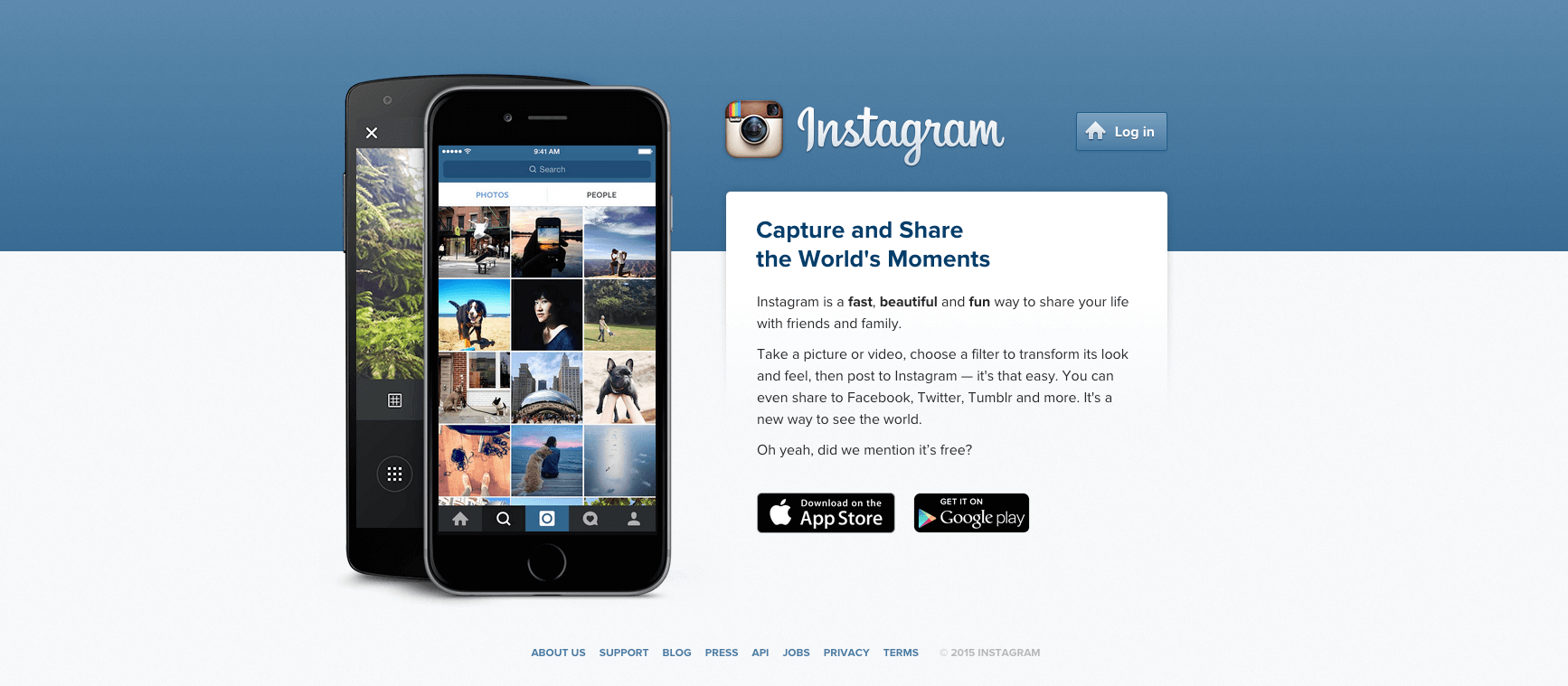Instagram’s ad business is growing up fast thanks to a boost of new technology from Facebook. Today, the popular photo-sharing app with more than 300 million users and counting is opening up to potentially millions of advertisers, with more ad styles and sophisticated targeting tools first honed by its parent company.
Instagram is launching ads with “Shop Now” buttons and other messages that link outside the app so users can take marketable action. Also, there’s a new API—software platform—that lets marketing partners automate the advertising process.
The API comes polished—able to manage, track and measure marketing campaigns—thanks to borrowed technology and lessons learned from Facebook, said James Quarles, Instagram’s global head of business and brand development. Advertisers can reach users based on more than just their ages and genders, targeting interests gleaned from Facebook profiles.
“We have benefitted greatly from being a part of Facebook,” Quarles said. “It would have taken us years to build this tech stack for ourselves. So, we’re fortunate to be able to take select pieces of Facebook’s tech stack.”
Facebook bought Instagram for $1 billion in 2012, when it needed to secure a hold on the mobile future. Ads launched on the app in late 2013, and they have since been an exclusive offering for select brands.
The ad design has been all about customizing commercial content that blends as much as possible with the rest of people’s photo feeds without disrupting the experience too much. There is always a fear that the introduction of ads will turn users off and send them packing. When the Instagram community first saw sponsored images, there was a fair amount of backlash from consumers who didn’t welcome posts from brands they weren’t following.
Instagram has run 475 campaigns with big names like Disney, Electronic Arts, The Gap, Ben and Jerry’s, Michael Kors and Taco Bell. Brands promoted glossy, magazine-style photos, 15-second video ads and new Gif-like cinemagraphs.
However, Instagram never allowed links that took users outside the app to buy the products in the pictures. To do that, brands like The Gap have used third-party services, including Like2Buy.
“It’s an ideal platform to shop on as it’s so visual and fashion oriented,” said Old Navy media director Michele Schuh in an email to Adweek. “We’re thrilled that Instagram is now offering users the ability to click directly through to a product, creating instant gratification without any cumbersome steps.” Instagram has always been viewed as a potential shopping channel, able to drive users to buy products or download apps. The only question was whether the company and its CEO Kevin Systrom would allow such marketing tactics.
“We always felt Instagram could be a really useful platform for performance advertising,” said Kfir Gavrieli, founder of Tieks, a fashion brand with a large social footprint. “Honestly, it wasn’t clear that they ever would do this, because Instagram was all about beautiful photos and imagery. So this was a surprise to us.”
Marketing-software companies like Salesforce and Nanigans will start offering the option to buy Instagram ads to their clients, who already use the platform to plan and measure their social-media advertising. Nanigans works with advertisers that specialize in direct-response marketing in sectors like travel, finance and e-commerce. These types of marketers will spend as much as they can as long as the ads bring customers, according to Nanigans CEO Ric Calvillo.
“Assuming the API behaves similarly to Facebook’s, it unlocks a lot of quick demand,” Calvillo said. Facebook has 2 million advertisers that are now potential Instagram clients, as well. Among them are niche companies like Chef’s Roll, a hub for thousands of chefs to share across social media and blog networks. The subject matter is a good fit for such a food-focused audience, according to Chef’s Roll CEO Thomas Keslinke. Chef’s Roll helps food organizations like the American Lamb Board and Avocados From Mexico team with its chefs to create content. Now, it can promote that content to thousands of foodies using the same targeting the company uses to buy ads on Facebook. “Rather than blanket a website or magazine, we are able to pinpoint who we want to reach,” he said.
Quarles said consumers have shown an interest in shopping via the app—Instagram has seen users grab screenshots of posts, which could mean they intend to learn more about the products featured. Now, the posts will have Shop Now, Book Now, Download, Learn More and Sign Up links.
“It’s not enough to just inspire; you want people to be able to take action,” said Jason Stein, CEO of Laundry Service, which works with brands like Beats by Dre, Amazon and Jordan on Instagram marketing campaigns. “I can’t tell you how many people are saying on big brands’ posts, ‘How do I buy this?’ There is a demand that people want to take action.”






